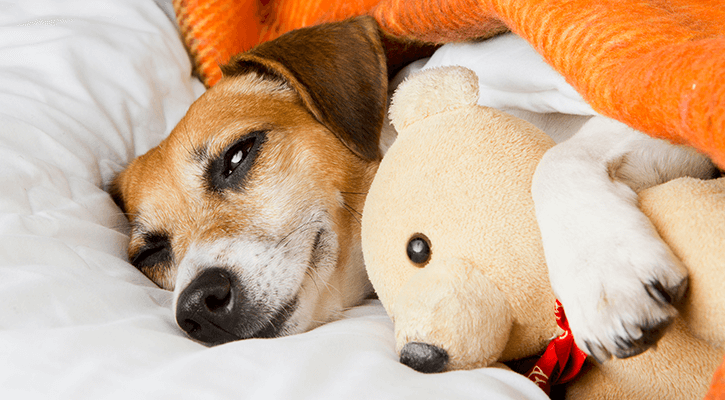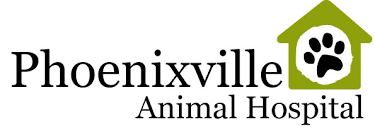
General Anesthesia &
Surgery Information
Planning for general anesthesia and surgery can be an unfamiliar and emotional journey for many of our clients and their pets. If you are planning a prophylactic procedure or experiencing an unplanned surgical emergency, the doctors and staff at Phoenixville Animal Hospital have put together the following road map to calm your nerves and educate you on what your pet will experience during his/her stay at our hospital.
Pre-Anesthetic Testing
Following the medical recommendation for surgical intervention by one of our staff doctors, you will be asked to schedule a pre-anesthetic exam for your pet. This visit is scheduled within 6 weeks of your pet’s planned anesthetic procedure. Our doctors prefer a comprehensive blood screen, because it gives them the most information to ensure the safety of your pet. For geriatric or ill pets, additional blood tests, urinalysis, or x-rays may be indicated before surgery as well. You will be asked to bring your pet in with one of our veterinary technicians for his/her pre-anesthetic testing, weight assessment, and discussion of the scheduled procedure.
A COMPREHENSIVE BLOOD SCREEN IS AN IMPORTANT FIRST STEP TO BEING CERTAIN YOUR PET IS HEALTHY ENOUGH TO UNDERGO AN ANESTHETIC PROCEDURE. With a goal of safety first, pre-anesthetic screening ensures that your pet’s liver and kidneys can handle the anesthetic event. Even apparently healthy animals can have serious organ system problems that cannot be detected without blood testing. Infections can inhibit or delay healing, and red blood cell losses can decrease your body’s ability to oxygenate optimally. If there is a problem, it is much better to find it before it causes anesthetic or surgical complications. Animals that have minor dysfunction will be able to acclimate to the anesthesia more completely when given intravenous (IV) fluids during surgery. Here at Phoenixville Animal Hospital all of our patients receive intravenous (IV) fluids during anesthesia. If serious problems are detected on your pets pre-anesthetic screening, surgery can be postponed until the problem is corrected. Safety is our number one priority.
Your pet’s surgeon will contact you by phone within 3-5 days with the results.
Anesthesia safety
Today’s modern anesthetic monitors and drugs have made surgery much safer than in the past. Here at Phoenixville Animal Hospital, we have an isolated surgical suite and designated certified veterinary technicians and nursing assistants to assist your pet throughout their stay with us.
One of our staff receptionists will contact you the night before to confirm your pet’s appointment and remind you to withhold food after 8pm. Small amounts of water are fine. Please walk your dog on a leash to keep a close eye on him/her to make sure they are not eating leaves, sticks, dirt, or any other foreign material that might look awfully yummy when you’re hungry. All cats are to be kept inside the night before anesthesia. It is important that surgery be done on an empty stomach to reduce the risk of vomiting and aspiration pneumonia.
Schedule of events on surgery day
Surgical admission occurs at the front desk. Please plan to have a 10-15 minute admission consultation with one of our trained personnel. Procedure estimates, consent forms and contact information will be reviewed. Please be advised that the person admitting your pet must be 18 years of age or older to sign consent forms.
A complete examination is performed the morning of your pet’s procedure. Pre-anesthetic pain medication is administered by injection. Hair is shaved to allow for placement of an Intravenous (IV) catheter. IV anesthetics are administered, and your pet is intubated and placed on gas anesthesia and oxygen support. IV fluids are administered during the procedure. Oxygenation, blood pressure, body temperature and ECG rhythm are all monitored by a certified veterinary technician while your pet is under anesthesia.
Following completion of your pet’s general anesthetic/surgical procedure, your pet will recover with us in the hospital and will go home later in the afternoon. Vitals are monitored for a minimum of 3 hours. You will receive a phone call from your doctor when your pet has recovered from anesthesia.
Sutures/stitches
Suture/stitches selection at the doctors discretion. For many surgeries, we use absorbable sutures underneath the skin. These will dissolve on their own, and do not need to be removed later. Some surgeries do require skin stitches. With either type of suture, you will need to keep an eye on the incision for swelling or discharge. Most dogs and cats do not lick excessively or chew at the incision, but this is an occasional problem you will also need to watch for. All patients are seen back for a complimentary post-procedure examination in 10-14 days. If there are skin sutures, these will usually be removed at that time. You will also need to limit your pet’s activity level for that period of time, and no baths are allowed.
Pain Management
Anything that causes pain in people can be expected to cause pain in animals. Pets may not show the same symptoms of pain as people do; they usually don’t whine or cry, but you can be sure they feel it. All surgical estimates include pain management. All patients undergoing general anesthesia are given an injection of pain medication as an anesthetic pre-medication.
Your pet will be discharged with an oral anti-inflammatory & pain medication after surgery to lessen the risk of discomfort and swelling. We use newer medications, which are less likely to cause stomach upset and can be given even the same evening after surgery. Additional pain medications may be dispensed when indicated.
Recent advances in pain medications have allowed for better pain control in cats than ever before. Cats are much more sensitive to the effects of oral anti-inflammatories. A specific medication has come out for use in cats. We have found it to be very effective for both pain and inflammation in our feline patients.
Providing pain management is not optional here at Phoenixville Animal Hospital, it is the appropriate, humane and caring thing to do for your pet.
Ideas to consider
While your pet is under anesthesia, it is the ideal time to perform other minor prophylactic procedures, such as ultrasonic scaling and polishing of the teeth, ear cleaning, or implanting an identification microchip. If you would like an estimate for these extra services, please call ahead of time. This is especially important if the person dropping the pet off for surgery is not the primary decision maker for the pet’s care.
When you bring your pet in for surgery, we will need 15 minutes of time to fill out paperwork. When you pick up your pet after surgery, you should also plan to spend about 15 minutes to go over your pet’s home care needs.
We will call you one or two nights before your scheduled surgery appointment, to confirm the time you will be dropping your pet off, and to answer any questions you might have. In the meantime, please don’t hesitate to call us with any questions about your pet’s health or surgery.
Veterinary Surgery in Phoenixville, Pennsylvania
To learn more about anesthesia and surgery for your dog or cat, contact us online or call us at 610-935-3423. Make An Appointment with Phoenixville Animal Hospital today!
